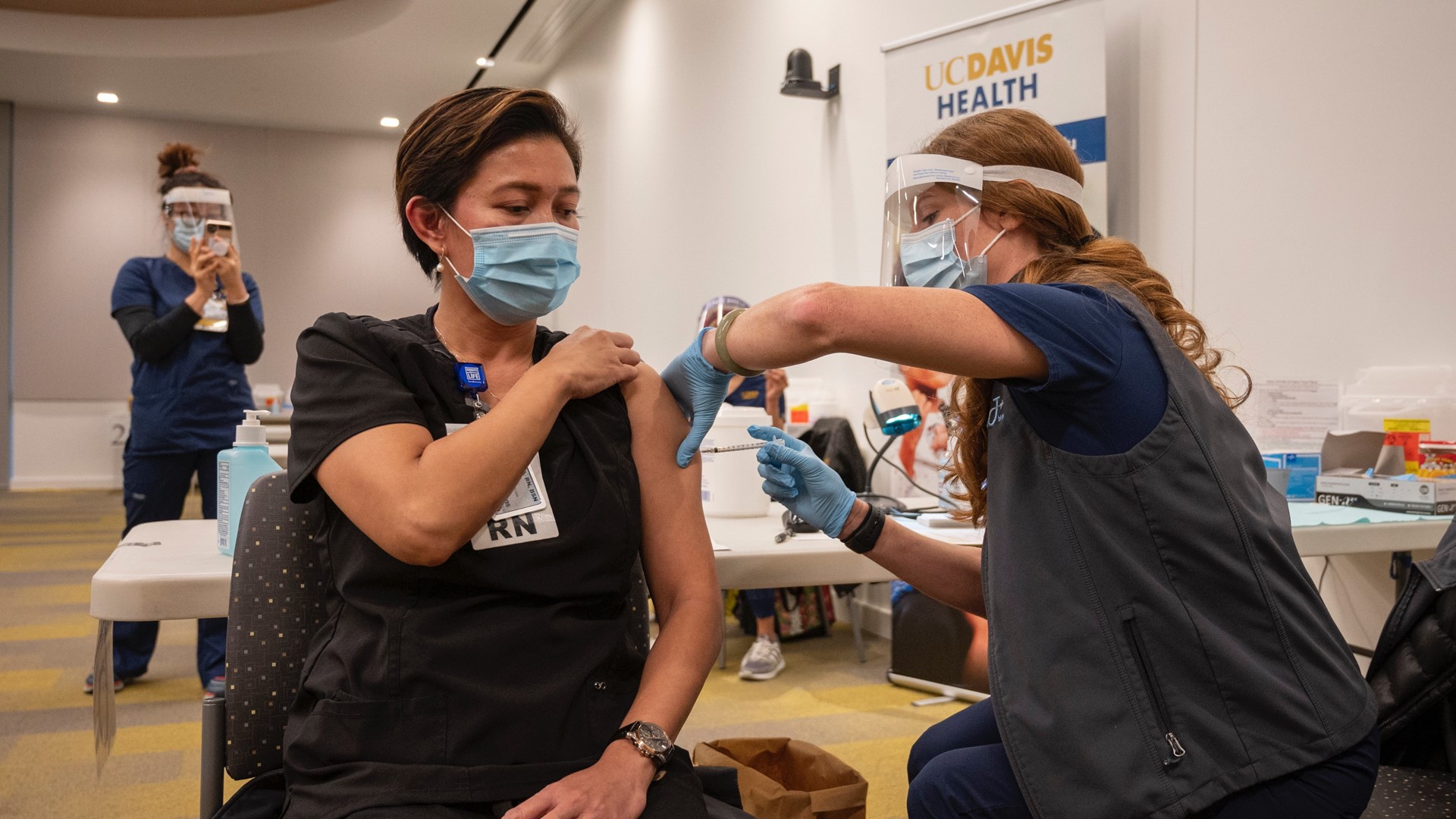SACRAMENTO, California — After a year of battling COVID-19, relief in the form of a vaccine finally arrived in Sacramento this week. The Pfizer COVID-19 vaccine is being distributed to frontline workers in Sacramento with UC Davis being one of seven California hospitals to receive a portion of the state's allotment.
With future vaccination plans underway, some workers may be wondering if they will be required to take a COVID-19 vaccine by their employer.
Workers rights attorney Andy Katz said employers can require their employees to take the vaccine, but some exceptions could be granted. Here's what Katz said workers need to know:
Can employers require employees to get a COVID-19 vaccination?
Generally, yes. Employers can choose to do that. For example, the University of California already has a mandatory vaccination policy for the flu vaccine for everybody who will be accessing one of its campuses. In the background of this all employment, unless there is a collective bargaining agreement, is at-will in California.
In addition, employers have a general duty to provide a safe workplace and to mitigate all health and safety hazards. So, an employer could do a number of things. They can require vaccinations, they could require recording of vaccinations. They, however, must provide reasonable accommodations for religious reasons, disability, or medical condition.
Do you think employers will implement policies around COVID-19 vaccines?
I think it's too early to say whether there will be a large portion of employers that choose to adopt a mandatory vaccination policy. There are other alternatives.
Employers can encourage use of the vaccine and promote access to the vaccine. Employers can monitor whether employees are getting the vaccine. Employers can also carefully examine who is getting into close contact with more vulnerable individuals and also take into account what's happening in their region, whether we're getting close to herd immunity because those factors would be relevant for whether any kind of further requirements are needed to provide a safe workplace.
Do workers have the right to refuse their employer's requirement if they don't feel comfortable taking the vaccine?
Employment is at-will. There are a number of reasons why an employer can choose to fire someone. We normally expect our workplaces to act in good faith, but we have many reasons why we do prevent unfair terminations that are wrongful.
We protect employment based on race, sex, gender, sexual orientation, disability, whistleblowing for safety, and many other protected reasons. But refusing to take a vaccine is not considered one of those protected reasons, so it may be subject to at-will employment.
If an employer receives a documented request for reasonable accommodation by a doctor, then that would qualify for a reasonable accommodation for a disability or medical condition. If there is a genuinely held religious belief then that individual will need to certify as such but is also allowed to have a reasonable accommodation from receiving the vaccine.
Do employers have to grant paid time off for employees who may experience an immune response after taking the vaccine?
We have seen successful trials without reports of serious health consequences. There are certainly side effects associated with this vaccine that indicate that we should be having some kind of allowance for scheduling accommodations.
Understanding that employees will need to take a sick day after either or maybe both doses of the vaccine. I think that's a very manageable issue and one that shouldn't be ignored.
There is a good argument that if there is an employer policy to receive the vaccine and the vaccine causes one or two days of absence, then that would be covered by workplace protections for work injury. It wouldn't qualify for the minimum threshold of three days for temporary disability compensation, so there wouldn't be temporary disability benefits for anything less than three days. In addition, all employers in California are required to provide three days of sick days per year.
Read more from ABC10
ABC10: Watch, Download, Read
UC Davis Health received thousands of doses of the Pfizer COVID-19 on Tuesday morning.

















